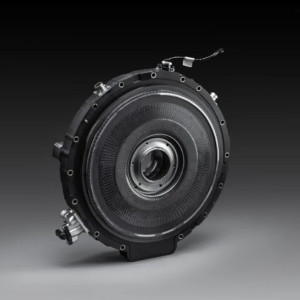UK electric motor developer YASA hails major performance breakthrough


Developer of a refined version of the of the axial-flux motor - a concept originally invented by Michael Faraday in 1821 - the Oxfordshire headquartered firm, a subsidiary of Mercedes-Benz since 2021, is on a mission to dramatically improve the performance of electric vehicles. Earlier in the summer, YASA achieved 550kW (738bhp) from a 13.1kg version of its new axial flux prototype motor, equating to an unofficial power density world record of 42kW/kg, but according to the company latest testing of a lighter 12.7kg prototype has exceeded this.
This motor will bring game-changing technology to the high-performance automotive sector
Tim Woolmer - Founder and CTO, YASA
Hitting a 750kW (>1000bhp) short-term peak rating, YASA has set a new unofficial electric motor power density world record of 59kW/kg - a 40% increase on initial testing. But the motor is not just focused on setting new standards for peak power, YASA also estimates that its continuous power will be in the region of 350kW-400kW (469bhp-536bhp).
Designed and developed at YASA's Oxfordshire Innovation Centre - with support from the Advanced Propulsion Centre - the breakthrough represents a major validation of the company's axial flux technology. "To achieve a 750kW short-term peak rating and a density of 59kW/kg is a major validation of our next-generation axial flux technology. It's proof of what focused engineering innovation can achieve.
And this isn't a concept on a screen -- it's running, right now, on the dynos," said Tim Woolmer, Founder and CTO, YASA. "We've built an electric motor that's significantly more power-dense than anything before it - all with scalable materials and processes. This motor will bring game-changing technology to the high-performance automotive sector." Simon Odling, YASA's Chief of New Technology, added: "The early results are extremely encouraging.
The motor's performance on the dyno has exceeded even our most optimistic simulations.
As well as its incredible peak power and overall power density, we estimate this new motor will be able to deliver all-important continuous power in the region of 350kW-400kW. This is real hardware, in real life, delivering real data - and it's performing beautifully."
YASA's engineering team now already validating the prototype through extended testing cycles.